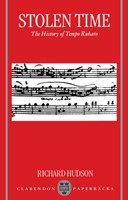I've recently discovered this young quartet through their new recording of Beethoven's 10th and 13th string quartets. They play on instruments with gut strings and with 19th century bows.
It's something of a revelation for me. Quite apart from the rich warmth of the gut strings, the interplay between instruments and Beethoven's counterpoint seems clearer and more nuanced. Some of this will be the musicianship, but the instruments must play a part.
I just don't know why this hasn't become a more widespread phenomenon amongst quartets.
It's something of a revelation for me. Quite apart from the rich warmth of the gut strings, the interplay between instruments and Beethoven's counterpoint seems clearer and more nuanced. Some of this will be the musicianship, but the instruments must play a part.
I just don't know why this hasn't become a more widespread phenomenon amongst quartets.



